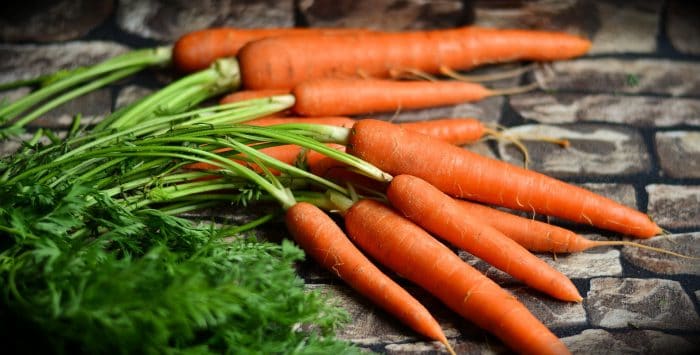An overabundance of fruits and vegetables from your garden means you may have a problem. What do you do with all the extras? Some of it you will want to eat right away, some you may want to share with others but some you will probably want to store. Do you know how to choose which fruits and veggies to store and which are best used in another way?

How to Choose Which Fruits and Veggies to Store
No matter if you’re talking about fruits or vegetables, you want to purchase produce at the end of your grocery shopping trip. Choose the food at the peak of ripeness. Look for fruits that are firm and not mushy.
Set fruit with bruises aside. You won’t want to use these for storage whether you’re considering freezing, canning or dehydrating Using bruised fruits increases the chance that the food will be less than its best and could even lead to the food spoiling and all that hard work going to waste.
* Cherries – Great for canning, freezing and dehydrating. For the best results, pit the cherry first to make them easier to use. They should be uniform in color and firm.
* Blackberries – Consider freezing or canning. They don’t dehydrate well at all. Lie in a single layer on cookie sheets and then freeze them. Once frozen you can move them to a freezer bag.
* Blueberries – Can be made into jelly and canned, frozen or dehydrated. Choose fruit that is plump and not shriveled with a deep blue color.
* Grapes – Red, green and black – These are best stored after being frozen. The fruit should be firm and plump with green stems.
* Peaches and nectarines – Nothing beats homemade peach jam so take advantage of any surplus to can. You can also freeze both fruits relatively well if sliced thin enough.
* Strawberries – These should have a smooth, shiny and even color. They shouldn’t be bruised, slimy or have excessive yellow coloring. Lay them out on a cookie sheet in a thin layer to freeze them. You can also make strawberry preserves.
Not all vegetables are good for long-term storage due to the amount of water in them. Water expands when frozen and breaks down the cell walls. When the produce is thawed, you will notice the texture being much softer than original. For this reason, it is helpful to cook the vegetables before freezing them.

When you do freeze fruit, it will retain its quality for 8 to 12 months. After that the quality begins to degrade. Fruit packed in sugar or sugar syrups will keep longer than unsweetened fruit that is frozen.
Frozen vegetables will also remain good for 12 to 18 months. It is best to use the frozen vegetables before the next season’s crop comes in and is ready to freeze. Don’t forget that when freezing vegetables, you will want to blanch them first, drain them and then put them in the freezer. You can also pressure can and dehydrate vegetables. Be sure to read the instruction manuals for tips on which vegetables can be used in each machine.

